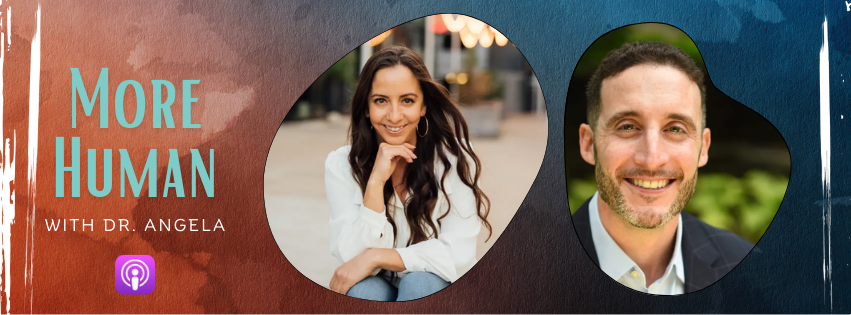Spirituality and the Natural World: 5 Innovative & Active Responses to Climate Change
- Sep 4, 2024
- 4 min read
by Claire Nelson

Image: Wix
Environmental professor Jessica Eise had gone to Colombia to study climate change’s impact on the lives of rural farmers, but upon listening to their stories, she was struck by something else entirely: “At times, each farmer seemed to speak of his or her land with a kind of poetic mysticism. As if it were more than composite pieces of dirt and trees and air and water, but rather something sacred,” she writes in a Sierra Club article. The farmer’s spiritual disposition, she came to believe, was not only beautiful but also much-needed. “Having completed a couple books on food security, agriculture, and communication, I understood with ironclad certainty that we have the technical solutions to climate change. The pieces, I’m confident, are all there; we know what we need to do. What we lack, however, is broad enough social willpower and consensus. We are missing a united front built on compassion and connection and courage to do something big enough and amazing enough,” she wrote.
Below are five individuals and groups rooted in their spirituality and innovatively responding to the changes in our climate and natural world.
Networking Training and Movement Building - Blessed Tomorrow

Image: Blessed Tomorrow
Blessed Tomorrow brings together 29 faith-based organizations committed to climate action. “Through Blessed Tomorrow, faith leaders work to reach 100% clean energy, prepare for a changing climate, and engage their communities, while maintaining the distinct voices of their traditions,” the organization writes. The organization provides faith communities with extensive resources to support effective climate action and conducts research about impactful climate communication. In 2024, Blessed Tomorrow convened over 1,400 participants for the National Faith + Climate Forum and created a list of recommended actions anyone can take to support the climate movement, including educating yourself on climate change and taking the lead on climate action in your community.
Healing and Spiritual Care at the Intersection of Racial and Environmental Justice - Eco Healing Project

Image: Aliyah Collins
Before pursuing her Master of Divinity from Harvard Divinity School, Aliyah Collins personally experienced the cost of climate change. While she was an undergrad in Nashville, a series of tornadoes ripped through North Nashville, a historically Black area. “I started to think about my own community. We really didn’t have equal access to a lot of green spaces, and that impacted our mental health whether we knew it or not,” Collins said. She then founded the Eco Healing Project which provides students at Historically Black Colleges and Universities with resources to start and tend their own gardens. “I want people to understand the healing benefits of nature, and how important nature is for our holistic health.” Collins was recently awarded $20,000 to support the work as part of Tom’s of Maine Incubator, a program that seeks to elevate BIPOC climate leaders.
Accompanying and Engaging Activism - Eco-Chaplaincy and Climate Conscious Chaplaincy

Image: The BTS Center
The Sati Center for Buddhist Studies defines eco-chaplaincy as, “work to support people in developing healthy, compassionate, and mutually supportive relationships with each other and with the natural world.” This type of spiritual care can look like mindfulness practices in nature, nature-based rites of passage, and faith-based environmental activism, and it is not relegated to one tradition. Rev. Alison Cornish, coordinator of the Chaplaincy Initiative at the Bangor Theological Seminary, prefers the term “climate-conscious chaplaincy,” to underscore that all contemporary spiritual care takes place against a backdrop of the climate crisis. In an email, she writes “I actually started thinking about chaplaincy to/for/with Earth back in 2011, at an intensive workshop with the Buddhist deep ecology teacher Joanna Macy. I had some ideas about engaging both chaplaincy skills/presence with healing and Earth, but the idea stayed that … an idea … which was further germinated during my ministry with multi- and interfaith organizations, faith-and-climate work, and parish ministry. I tried some experiments – like re-casting holidays and ceremonies – with attention to our planet’s dire condition.”
Empowering Advocacy at Local, National, and Global Levels - Interfaith Power and Light

Image: Interfaith Power and Light
Interfaith Power and Light is a faith-based climate advocacy organization that operates at the local, national, and international levels. The organization “mobilizes people of faith and conscience to take bold and aggressive action on climate change,” working with 40 state affiliates, 22,000 faith communities, and 6,500,000 people of faith. Their values statement reads, “Because we embrace faith and spirituality, we are grounded in the interconnectedness of the sacred, the natural world, and one another... Because we embrace hope, we are empowered to live into our vision for the world for present and future generations… Because love is central to who we are, we are committed to ending the suffering caused by climate change.”
Centering Indigenous Wisdom, Values, and Rights - Center for Earth Ethics

Image: The Center for Earth Ethics
The Center for Earth Ethics, a Union Theological Seminary Initiative, “works at the intersection of values, spirit, education and civic engagement.” They define earth ethics as “the discernment of how to live in relationship with the living planet,” and hold “Indigenous Wisdom, Values, and Rights” as a core area of focus. “We amplify and engage with Indigenous wisdom to reorient society back toward nature and shape a more eco-centric world,” the group writes. The group convenes global advocates, conducts grassroots dialogue, and engages in lobbying.
_____________________
We want to learn about the spiritually innovative projects and initiatives that focus on the world's most pressing and complex problems. Are you an emerging or established spiritual innovator seeking a generative and actionable space to build and launch with like-minded peers? Learn more about START: The Design Thinking Course for Spiritual Innovators



